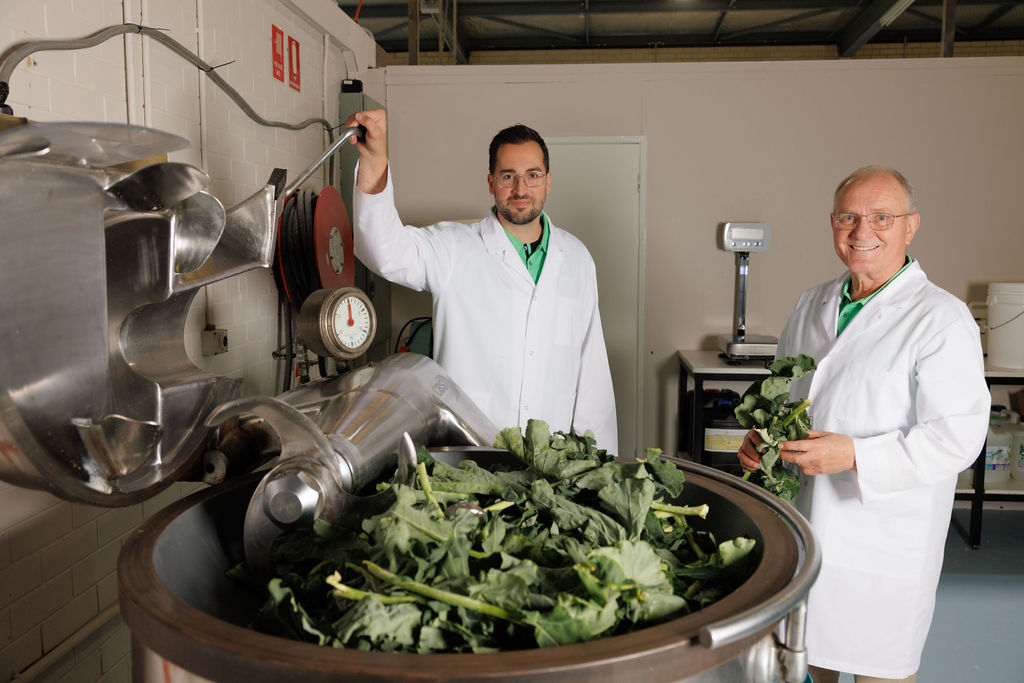Plant-based ingredient manufacturer Whole. has secured a $200,000 grant from the WA state government to further develop its technology.
Whole. was among 11 companies to receive grant funding under the Commercialisation Bridge Grant (CBG). Funded through the $25.8 million New Industries Fund, the newly launched program was designed to assist WA innovators bridge the ‘Valley of Death’ between a commercialised innovation and a sustainable, scalable business, creating more jobs and economic diversification for Western Australia.
Whole. claims that its WINX (Whole Ingredient Nutrient Extraction) technology uses ultra-high pressure to ‘explode’ the cells of input ingredients such as grains and pulses or food waste, which significantly enhances its nutritional value and makes it more bioavailable in the body.
Whole.’s CEO and co-founder Nick Stamatiou spoke to Future Alternative about the company’s plans for the funding.
“The grant will enable Whole. to complete development and commercialisation of its WINX Reactiv processing technology, giving customers the ability to rapidly trial and validate ingredient and flavour combinations while still accessing the benefits of waste elimination and enhanced bioavailability,” Stamatiou said.
“Our WINX™ processing technology has already been validated by many of our global customers as a market leader in terms of eliminating waste and enhancing nutritional delivery. However, the demand for the smaller scale WINX Reactiv™ processing units has emerged from the need to conduct rapid product prototyping before moving into a large-scale production environment.”
Stamatiou added that Whole. was exploring a range of new commercial projects, such as waste-free coffee and ultra-extraction of red wine grapes, saying there was an enormous demand for the small scale pilot units that would fuel the company’s expansion overseas.

In addition to the CBG grant, Whole. was recently one of six groups to receive grant funding from the South‐West WA Drought Resilience Adoption and Innovation Hub (SW WA Hub). The purpose of the funding was to use WINX technology to transform potato waste into a more sustainable and effective novel feedstock.
Whole. raised $1.5 million in a 2023 seed funding round supported by Artesian and the Grains Research and Development Corporation (GRDC).
The company was also recently recognised by AusAgritech at the Australian Agritech Awards 2024 as the leading Food Tech business in Australia.
The grant is the latest example of state governments stepping up to fund plant-based innovation in Australia in lieu of support from the federal government.
In 2022, Australia was seen as on track to become a world leader in public funding for plant-based proteins — that was following the federal government’s announcement of a $113 million grant for the construction of three state-of-the-art pulse protein facilities. However, the new government’s rescinding of this grant and seven other projects in 2023 has been criticised as a big setback to Australia’s progress, leaving it to state governments to pick up the slack.
In 2023, for example, the WA government allocated AUD $5 million ($3.3 million) to support the construction of a factory that will produce oat milk enriched with lupin protein, both from locally-grown crops.
“Australia has some of the best quality produce in the world – particularly when it comes to grains and legumes,” Stamatiou said to Future Alternative. “However, if we’re going to compete on the world stage, especially when it comes to alternative proteins, we need to focus on areas where we can deliver a sustainable competitive advantage. Competing on price alone, especially in a commodity ingredient market is always going to be a race to the bottom.
“While it’s important that we focus on developing the alternative proteins of the future, we have a tendency in this country to neglect and marginalise the farmers that grow the food we eat on a daily basis. As highlighted during the COVID pandemic, food security is a real and looming threat, so its critical that we ensure that all aspects of the food value chain are equally supported and incentivised.”
To stay up-to-date on the latest industry headlines, sign up to Future Alternative’s enewsletter.
Posted on:


